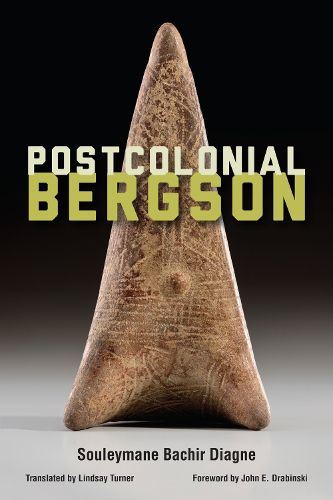Readings Newsletter
Become a Readings Member to make your shopping experience even easier.
Sign in or sign up for free!
You’re not far away from qualifying for FREE standard shipping within Australia
You’ve qualified for FREE standard shipping within Australia
The cart is loading…






Henri Bergson has been the subject of keen interest within French philosophy ever since being championed by Gilles Deleuze and others. Yet his influence extends well beyond European philosophy, especially within Africa and South Asia. Postcolonial Bergson traces the influence of Bergson’s thought through the work of two major figures in the postcolonial struggle, Muhammad Iqbal and Leopold Sedar Senghor. Poets and statesmen as well as philosophers, both of these thinkers-the one Muslim and the other Catholic-played an essential political and intellectual role in the independence of their respective countries. Both found, in Bergson’s work, important support for their philosophical, cultural, and political projects.
For Iqbal, a founding father of independent Pakistan, Bergson’s conceptions of time and creative evolution resonated with the need for the reconstruction of religious thought in Islam, a religious thought newly able to incorporate innovation and change. For Senghor, Bergsonian ideas of perception, intuition, and elan vital-filtered in part through the work of the French philosopher Pierre Teilhard de Chardin-proved crucial for thinking about African art, as well as foundational for his formulations of African socialism and his visions of an unalienated African future.
At a moment of renewed interest in Bergson’s philosophy, this book, by a major figure in both French and African philosophy, gives an expanded idea of the political ramifications of Bergson’s thought in a postcolonial context.
$9.00 standard shipping within Australia
FREE standard shipping within Australia for orders over $100.00
Express & International shipping calculated at checkout
Henri Bergson has been the subject of keen interest within French philosophy ever since being championed by Gilles Deleuze and others. Yet his influence extends well beyond European philosophy, especially within Africa and South Asia. Postcolonial Bergson traces the influence of Bergson’s thought through the work of two major figures in the postcolonial struggle, Muhammad Iqbal and Leopold Sedar Senghor. Poets and statesmen as well as philosophers, both of these thinkers-the one Muslim and the other Catholic-played an essential political and intellectual role in the independence of their respective countries. Both found, in Bergson’s work, important support for their philosophical, cultural, and political projects.
For Iqbal, a founding father of independent Pakistan, Bergson’s conceptions of time and creative evolution resonated with the need for the reconstruction of religious thought in Islam, a religious thought newly able to incorporate innovation and change. For Senghor, Bergsonian ideas of perception, intuition, and elan vital-filtered in part through the work of the French philosopher Pierre Teilhard de Chardin-proved crucial for thinking about African art, as well as foundational for his formulations of African socialism and his visions of an unalienated African future.
At a moment of renewed interest in Bergson’s philosophy, this book, by a major figure in both French and African philosophy, gives an expanded idea of the political ramifications of Bergson’s thought in a postcolonial context.